Signpost to good Shopping
The labels on Migros products provide the perfect guide to better shopping. In 2011 Migros expanded its sustainable range and standardised its Bio labels. Sales with label products are continuing to rise.
As well as the high standard of its normal range, the retailer also sells a growing number of products that offer particular environmental or social added value. And they are also offered at affordable prices. Anyone wanting to shop sustainably can rely on the labels of Migros products. A series of own, but also nationally and internationally used labels can be found on the shelves. The sustainable label products made up 15.6% of total sales of Cooperative Retailing in 2011. In addition to sustainable label products, Migros has a comprehensive range of green household and care products: they include cleaning and washing agents of the company's own M Plus brand, the care line Natural Cosmetics as well as varnishes and paints, which are certified with the Blue Angel.
Migros Bio
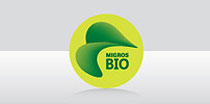
All organic Migros products from Switzerland are sourced from farms which are certified according to the requirements of Bio Suisse. Produce imported from abroad corresponds to the requirements of the European directive on organic farming. The range of produce includes a total of more than one thousand products. In 2011 various new items were added, in particular in the areas of fish and spices. The demand for organic produce is now so strong that procurement shortages occurred for fish, milk and meat. Migros participated in the Bio Marché in Zofingen for the twelfth time in June 2011. The Migros Bio label continues to grow and increased sales last year to CHF 436 million, up 7.1% on the previous year, despite significant price reductions (Bio Garden included).
Migros Bio-Cotton
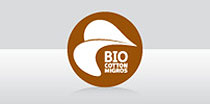
Migros organic cotton is cultivated in harmony with nature and processed carefully to eco criteria. Independent checks along the entire production chain ensure that the strict directives are observed. Last year, Migros again expanded its organic cotton range. It now includes some 550 permanent and seasonal items; in addition to baby and children's clothes, a large selection of clothes for adults and home textiles. Since 2011, Bio-Cotton and Migros-Bio (food) have appeared in a standard design. Sales rose on the previous year by 69.1% to CHF 30 million.
Migros Bio Garden
In Migros Bio Garden, Migros created a line of green garden products last year. In the specialist retail centres of Do it + Garden Migros, eight kinds of fertiliser, three soils as well as peat substitutes and garden mulch are available with the new logo. All products meet strict guidelines which Migros has developed jointly with the Research Institute of Organic Culture (FiBL). Organic fertiliser does not contain any synthetic substances, but consists of natural components, such as compost or stone dust. Garden soils are produced without peat. The label generated sales of CHF 1 million in 2011.
TerraSuisse
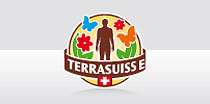
With the TerraSuisse label, Migros is committed to a natural Swiss agriculture together with IP-Suisse and the Swiss Ornithological Institute Sempach. The principles of the label are animal-friendly husbandry, minimum use of fertiliser and pesticides as well as the creation of habitats for rare plants and wildlife. For wheat and meat in particular, the sustainable label products make up a large proportion of the overall range. In 2011 Migros rolled out TerraSuisse pasture milk. The cows eat mainly grass and hay from the local farm. Migros thereby supports milk production in accordance with the location. The retailer also launched a unique fund raising campaign: Facebook users could access the TerraSuisse website, and for every click Migros donated wild flower seeds, which will be sown on wheat fields and fallow land in 2012. Compared with the previous year, sales of TerraSuisse products rose by 7.4% to CHF 644 million.
MSC
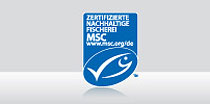
The blue seal of the Marine Stewardship Council indicates fish and seafood from certified sustainable fishing (wild fish). Migros has a broad range of MSC fish and seafood: fresh produce can be found in the self-service department and at the serviced counters. Deep-frozen produce and tins can also be found in the self-service department. 6 items were newly added to the range in 2011. Within one year, sales of MSC produce rose by 16.5% and totalled CHF 58 million in 2011.
FSC
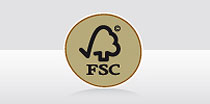
The FSC label stands for responsibly produced wood and paper products around the world. Migros has been working actively in the development of the label for many years and is continuously expanding its range accordingly. The retailer now has more than 2000 FSC products, from grill accessories to carrier bags through to toilet paper. Furniture and construction timber also bear the FSC logo. As of last year, men's underwear made from bamboo viscose has now been in the range, and Migros offers all nappies from its own Milette brand from certified raw materials. Migros also relies on the label for packaging: as such, in addition to other changes, the drink cartons for milk and M-Classic fruit juices are FSC certified. Overall, Migros generated sales of CHF 169 million, down 2.4% on the previous year, with FSC products in 2011.
Topten
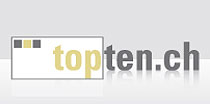
Migros awards particularly energy-efficient products with the Topten label. The range includes about 13 product categories, with the support of Migros now also lawn mowers and bathroom items, such as shower heads, as of 2011. The approx. 10% of the items available in the market which are the most energy efficient of each category bear the label. At the end of 2011, a total of 150 products offered by Migros bore a Topten label. The Topten range generated sales of CHF 50 million last year, up 27% on 2010.
approved by climatop
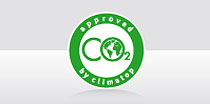
The «approved by climatop» label designates the most climate-friendly items within a group of products like cream, sugar, detergent or hairspray. In 2011 Migros newly awarded the label to two non-clumping cat litters. After three years, the products are re-assessed. As such, climatop again examined the liquid detergents, which were assessed in 2008 as the first category, last year. Happily, not only the CO2 champion Minimax Total achieved a higher performance, the other assessed liquid detergents were also assessed as being significantly more climate friendly. The carbon footprints of all products examined are published by Migros on its online platform migipedia.ch. Total sales of all 120 climatop products stood at CHF 38 million in 2011 and thereby increased by 10% on the previous year.
Max Havelaar
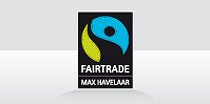
The Max Havelaar Foundation is committed to fair trade and better working conditions in developing and emerging countries. Migros offers more than 100 Max Havelaar products. In four cities of Switzerland, Max Havelaar organised «pop-up» restaurants under the motto of «We cook fair» in autumn 2011. In addition to fair trade menus, guests were offered interviews, podium debates and workshops relating to the topic of fair trade. Migros supported this campaign by providing sustainable food. For the annual rose sales of the Brot für alle and Fastenopfer relief organisations, Migros also again donated more than 160 000 Max Havelaar roses. The proceeds of some CHF 800'000 went to support people in developing countries. Max Havelaar products generated total sales of CHF 81 million in 2011, which is 1.7% less than in the previous year.
From the region. For the region
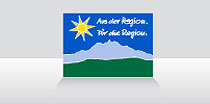
In 1999 Migros Cooperative Lucerne launched the From the region. For the Region programme. (AdR). All cooperatives have offered AdR products since 2006; Migros Cooperative Ticino has its own programme for regional produce under Nostrani del Ticino. With this label, Migros strengthens the regional economy and makes an important contribution to securing jobs. Some 8000 products on Migros' shelves bear the AdR label. The AdR website was relaunched in 2011. In the same year Migros generated sales of CHF 782 million (up 4.8% on the previous year) with its regional programmes.
Charts on total sales, sustainable labels and sales per label
2Due to new calculation bases, the sales of the sustainable labels are available for the first time as of 2009.